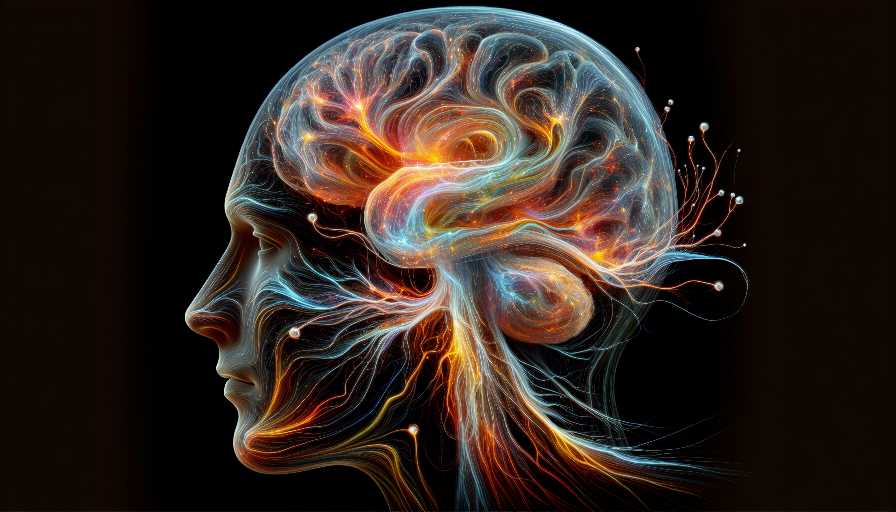
Feeling mentally tired without engaging in strenuous brainwork might seem puzzling. You may wonder why you’re exhausted after a seemingly low-key day. Mental fatigue is a common experience and can undermine your productivity and overall well-being. Here we look at the factors that can leave you feeling drained and learn some actionable strategies to help you feel more energized and focused.
Contents
Understanding Mental Fatigue
Mental fatigue is the sensation of feeling tired or exhausted in a cognitive sense. Unlike physical tiredness which is easy to spot after a long run, mental fatigue often sneaks up on you. It can occur even if you haven’t been involved in particularly taxing activities. This kind of fatigue can affect your ability to concentrate, solve problems, and remember things.
The Role of Stress in Mental Exhaustion
Stress is one of the biggest culprits when it comes to mental fatigue. Even small, everyday stressors can accumulate and weigh on your mind. Imagine carrying a backpack that gets heavier with each trivial worry or minor deadline. Eventually, even if it didn’t feel overwhelming at first, the cumulative effect can leave you feeling mentally worn out.
How Chronic Stress Compounds Fatigue
Chronic stress keeps your brain in a constant state of alert. This “fight or flight” state is useful for reacting to immediate threats but extremely exhausting if sustained over time. As a result, your brain burns through its energy reserves, leading to that foggy, tired feeling.
Inadequate Sleep and Rest
Sleep is like a reset button for your brain. It plays a critical role in processing memories and restoring mental energy. When you don’t get enough sleep, or the quality of your sleep is poor, your brain doesn’t have ample time to do its job. This insufficient rest can make you feel mentally sluggish, as if you have a constant cloud over your thoughts.
The Importance of Sleep Hygiene
- Maintaining a consistent sleep schedule.
- Creating a restful environment free of screens and distractions.
- Practicing relaxation techniques before bed, like deep breathing or gentle yoga.
Improving your sleep habits can substantially boost your mental energy levels throughout the day.
Poor Nutrition and Hydration
Your brain needs proper fuel to function at its best. If you’re not eating well, or if you’re dehydrated, your mental performance can suffer. It’s not just about how much you eat, but what you eat. A diet lacking key nutrients can lead to mental fatigue.
Fueling Your Brain with the Right Nutrients
Healthy fats, proteins, and complex carbohydrates provide steady energy. Foods like oily fish, nuts, leafy greens, and whole grains are known to support brain health. Additionally, ensuring you drink enough water throughout the day is vital. Dehydration can lead to confusion, short-term memory issues, and reduced attention span.
The Intrigue of Nootropics and Brain Supplements
As more people become aware of mental fatigue, interest in nootropics—supplements designed to enhance cognitive function—has grown. Though some users report feeling more focused and alert, it’s important to approach these products with caution and consult with a healthcare provider to ensure they’re appropriate for you. Relying solely on supplements without addressing lifestyle factors might not solve underlying issues of mental fatigue.
Lack of Physical Activity
It might seem counterintuitive, but not getting enough exercise can leave you feeling mentally fatigued. Physical activity increases blood flow to the brain, boosting mood and energy levels. Even gentle activities like walking or stretching can make a significant difference in combating mental tiredness.
Technology Overload
In this digital age, we’re often surrounded by screens. Constant notifications, emails, and social media make it hard to unplug and relax. This constant stimulation can lead to digital fatigue, adding to your mental exhaustion.
Managing Screen Time
To give your brain some downtime, it’s helpful to manage your screen time. Consider setting specific times of day to check messages or social media, and make sure to take frequent breaks from screens to rest your mind.
How to Revitalize Your Mental Energy
While many factors can contribute to feeling mentally tired, there are equally numerous ways to restore your mental energy. Here are some practical tips:
- Practice Mindfulness: Techniques such as meditation can help you manage stress and improve focus.
- Take Regular Breaks: Short, frequent breaks during work or study sessions can prevent burnout.
- Stay Socially Engaged: Interacting with friends and family provides emotional support and stimulation.
- Engage in New Activities: Challenging your brain with new hobbies or learning opportunities keeps it sharp.
Mental fatigue is a multifaceted issue that requires a holistic approach to address effectively. Understanding the contributing factors such as chronic stress, inadequate sleep, poor nutrition, and excessive screen time can empower you to make informed lifestyle changes. By incorporating mindful practices, proper nutrition, regular physical activity, and adequate rest into your routine, you can combat mental tiredness and enhance your cognitive function.
It’s also important to recognize when to seek professional help. If mental fatigue persists despite lifestyle changes, consulting with a healthcare provider or a mental health professional can provide further insights and personalized strategies to manage your mental energy. Remember, prioritizing your mental health is as crucial as caring for your physical well-being.
In this ever-demanding world, taking conscious steps to maintain your mental vitality is a key aspect of living a balanced and fulfilling life. Start small, stay consistent, and pay attention to how these changes impact your mental fatigue over time. Armed with this understanding, you can work towards a more energized, focused, and mentally resilient self.

